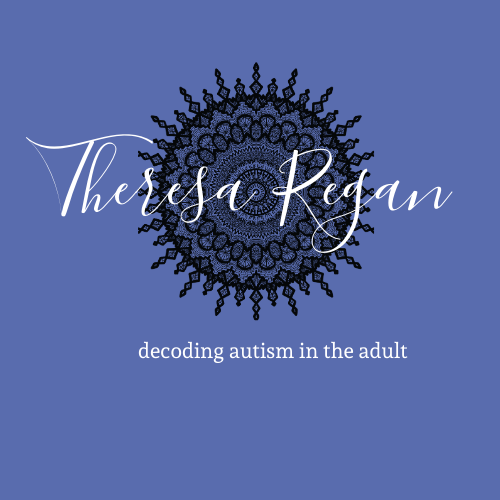Autism and ”Just Right”: The Quest for Balance
Description
Join Dr. Regan for this episode on the quest for balance on the autism spectrum. Whether it's emotional regulation, attention, sleep, social interactions, task initiation, finances and more, finding the "just right" state is difficult for many on the spectrum.
Book: The Science of Making Friends
Dr. Regan's Resources
Course for Clinicians - Interventions in Autism: Helping Clients Stay Centered, Connect with Others, and Engage in Life
Course for Clinicians: ASD Differential Diagnoses and Associated Characteristics
Book: Understanding Autism in Adults and Aging Adults, 2nd ed
Audiobook
Book: Understanding Autistic Behaviors
Autism in the Adult website homepage
Website Resources for Clinicians
Read the Transcript Here:
100:00:07,240 --> 00:00:11,610Hello and welcome back to the podcast Autism in the Adult.
200:00:11,620 --> 00:00:12,730I am your host,
300:00:12,730 --> 00:00:14,390Dr Theresa Regan,
400:00:14,400 --> 00:00:16,120a neuropsychologist,
500:00:16,130 --> 00:00:18,470a certified autism specialist.
600:00:18,480 --> 00:00:23,930The director of an autism diagnostic clinic for adolescents,
700:00:23,940 --> 00:00:29,590adults and aging adults in central Illinois and the mother of a teen on the spectrum.
800:00:30,660 --> 00:00:48,140I'm glad you're joining me today for this episode that I'm going to call autism and "just right." This is actually a great topic that was suggested by a listener from Finland and I hope that I am pronouncing the name correctly.
900:00:48,140 --> 00:01:07,680I think it's Maya ... Maya wrote about questions and struggles within the topic of balance in life when you have that autistic neurology,
1000:01:07,690 --> 00:01:09,270Maya wrote this.
1100:01:09,670 --> 00:01:23,030I would so much love to hear what you have to say about autistic people and the struggle we have with striking a balance in situations where we have to create an appropriate view on or understanding of things?
1200:01:23,040 --> 00:01:29,350I am convinced that this is the major autistic difficulty that I personally struggle with.
1300:01:30,110 --> 00:01:34,570It shows up in different forms for me and on many levels.
1400:01:35,700 --> 00:01:39,890I could take a few examples so that you understand what I mean?
1500:01:39,900 --> 00:01:44,520Because most often this is not linked to intelligence,
1600:01:44,530 --> 00:01:46,350for example,
1700:01:46,350 --> 00:01:47,490is this person,
1800:01:47,500 --> 00:01:50,100a friend who respects me or not,
1900:01:50,740 --> 00:01:53,230am I too skinny or even to fat?
2000:01:53,240 --> 00:01:58,050Should I contact a doctor because of this thing that I'm feeling right now.
2100:01:58,570 --> 00:02:01,470How far should I stand by this person's side?
2200:02:01,660 --> 00:02:04,500How much should I help him or her?
2300:02:05,210 --> 00:02:10,820Exactly how well should I perform in this university course in order to pass.
2400:02:11,910 --> 00:02:15,030I want to thank Maya for writing about that.
2500:02:15,040 --> 00:02:29,300Um this is something I've thought about as well and I think it's one of those really great ways to conceptualize autism aside from specific details.
2600:02:29,310 --> 00:02:34,510So sometimes to get the most meaning out of what you're feeling,
2700:02:34,510 --> 00:02:47,890it can help to step back and say how is it that all these little pieces of the autistic experience hang together in some ways it can feel so granular,
2800:02:47,900 --> 00:02:51,500like so many things are impacted.
2900:02:51,510 --> 00:02:59,120Why do these things happen at the same time and when we have ways of conceptualizing it?
3000:02:59,480 --> 00:03:02,450Um I think it brings meaning.
3100:03:02,460 --> 00:03:10,290It helps these little pieces come together as why do I have trouble with these 12 things?
3200:03:10,300 --> 00:03:11,380Well,
3300:03:11,390 --> 00:03:19,090these 12 things have a thread that go through and when we can step back and see that thread that joi
More Episodes
Join Dr. Regan for the fifth episode of the Lifespan of a Household series. Today's episode focuses on topics important to autistic individuals who are parenting young children.
Autism in the Adult website
Resources for professionals
Video Visits
Video Courses
Published 10/19/24
Join Dr. Regan for the 4th episode in the Lifespan of a Household series. Today's episode focuses on topics important to the autistic individual who is preparing for parenting.
Autism in the Adult website
Resources for professionals
Video Visits
Video Courses
Published 10/06/24
Published 10/06/24


